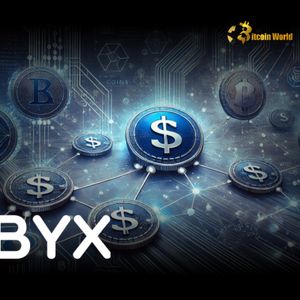U.S. authorities have struck a major blow against North Korea's cyber-financing infrastructure, seizing $7.7 million in cryptocurrency allegedly funneled to Pyongyang through a complex network of fake IT workers, stolen American identities, and global blockchain employment. The Justice Department's June 2025 civil forfeiture complaint describes a digital laundering arrangement that not only circumvented U.S. sanctions but highlights how vulnerabilities in crypto exchange know-your-customer protocols remain a national security threat. The script for the scheme reads like the pages of a cyber-thriller. North Korean actors, posing as freelance blockchain developers or smart contract developers, used stolen or fictitious U.S. identities to gain employment with U.S. and foreign technology companies. These workers, part of legitimate businesses, were paid salaries in stablecoins like USDC and USDT, which were then run through a web of self-hosted wallets, chain-hopping across blockchains, and ultimately consolidated in addresses under the control of Pyongyang. The DOJ complaint names over 84 exchange accounts linked to the laundering ring, a number of which were opened using fake KYC documents and recycled devices, rendering the operation both global and highly organized. Investigators followed the laundering channels step by step: funds moved from U.S. payrolls to ”IT Worker Consolidation Addresses,” then to accounts in the names of Russian and Malaysian pseudonyms, and finally to North Korean handlers like Sim Hyon Sop and Kim Sang Man — both of whom have been sanctioned by OFAC for their role in the regime's illicit finance. The network even utilized NFTs and Ethereum Name Service domains to disguise value transfers, a tactic being increasingly exploited in the crypto underworld. The case is a wake-up call for both the crypto industry and national security agencies. Despite the FBI and Treasury's repeated warnings since 2022, North Korean IT worker scams have only gotten more sophisticated, infiltrating even Fortune 500 companies and blockchain startups. The DOJ's ability to trace and seize the funds frozen since an earlier 2023 indictment marks an advance in blockchain forensics, but also illustrates the ongoing threat: as long as exchanges' KYC and transaction monitoring can be gamed, bad actors will find ways to exploit the system. This forfeiture action highlights, once again, the North Korean regime's reliance on the cryptocurrency market to fund its illicit priorities,” said Matthew Galeotti, head of the DOJ's Criminal Division. OFAC is bound to increase sanctions, not just to individuals but to exchanges and brokers used for laundering, knowingly or unknowingly. Compliance experts say the industry must move beyond blacklist checks, embracing real-time analytics, device fingerprinting, and behavioral monitoring to identify spoofed identities and organized laundering. As one AML consultant put it, ”The weakest KYC link is now a national security vulnerability.”. The DOJ complaint also outlines the extent and range of North Korea's IT worker scam: agents were not only based in China and Russia, but in the UAE and beyond, exploiting the global shift to remote work. The researchers found that the same hardware and login credentials were re-used for multiple fake personas, and language defaults were often Korean — further evidence of a state-sponsored, concerted campaign. The seized assets do not only include cryptocurrencies, but also NFTs and Ethereum Name Service domains of high value, pointing to North Korea's expansion of digital laundering techniques.



















